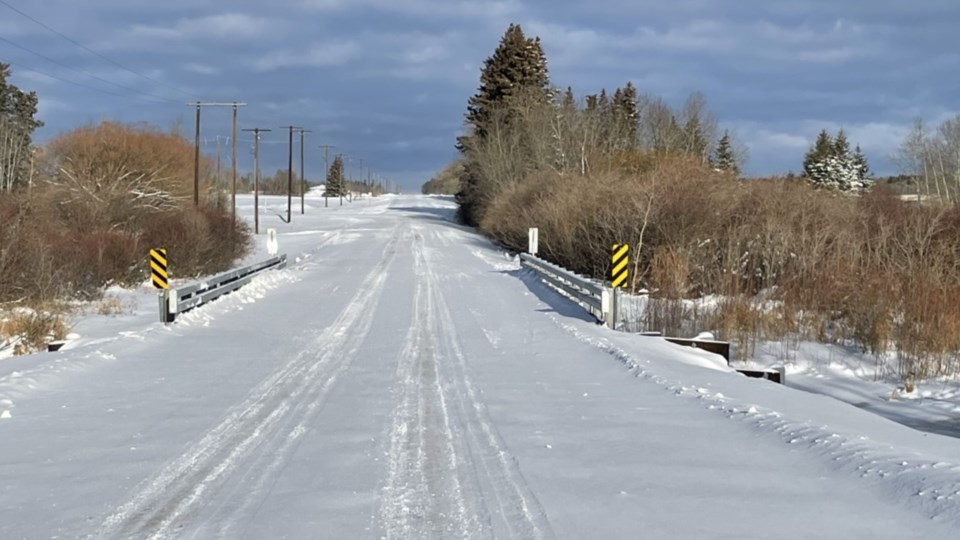NORTHEAST — The Northeast region of our province boasts many lakes and rivers. With that comes many bridges that are required to travel the area.
Currently there are 1,307 rural municipal bridges in the province of Saskatchewan. This number is almost double the amount of provincial highway bridges at 786. Rural municipal bridges have become an issue that can no longer be ignored as many are starting to get older in age.
According to Ray Orb, president of the Saskatchewan Association of Rural Municipalities (SARM), the average age of these bridges are 50 to 65 years in age. As these bridges age, it is the responsibility of the rural municipality to maintain them and it becoming a bigger issue since he started out as a board member of SARM in 2004. Orb said since 2004, bridges have been a concern for RMs and SARM has been advocating for more funding since then. SARM conducted a study back in 2004 on the age of bridges and the need for funding and went on to state that you could build a bridge for $100,000 and now in 2022, an average cost of a bridge depending on size is at least $1 million or more.
The Rural Municipality of Connaught No. 456 wins the award of having the most rural municipal bridges, at just under 40. It seems like it would be an impossible feat for any rural municipality to have the ability, staff, education required to inspect, maintain, fix or replace many of these bridges.
According to SARM, all rural municipal bridges are inspected on a three-year cycle by the province. It is split into three regions. The east side of province has, by and large, the most rural municipal bridges and is split into three subregions. The west side of the province is inspected over one year. It takes two years to inspect all the bridges on the East side.
The Rural Municipality of Bjorkdale No. 426 recently built a new bridge at Barrier Ford, with the cost to replace estimated to be just under $1 million. That bridge is one out of the 21 bridges that are in their rural municipality. The RM of Bjorkdale did receive funding though an ICIP (Investing in Canada Infrastructure Program) grant.
SARM recently received a boost in funding from the provincial government to invest in rural municipal bridges and roadways. The Rural Integrated Roads for Growth (RIRG) program provides funding for various infrastructure projects throughout rural Saskatchewan.
Before this funding was available, it was estimated that only three municipal bridges were being replaced annually.
Since this funding has become available, approximately $31.5 million over a three-year period, SARM estimated that now in a three-year period, 60 bridges have been replaced. SARM encourages all rural municipalities to contact their office and utilize their staff and expertise.
The decision to replace a bridge does not come lightly either, for many rural municipalities in order to replace or renovate a bridge an application an permit is required from three regulatory agencies: the Department of Fisheries and Oceans, Transport Canada and the provincial Water Security Agency. Combined with the complexities of replacing bridges and the need for engineers, it has made replacing rural municipal bridges an extremely long and financially burdensome process.
Is there an answer to replacing the aging infrastructure of municipal bridges? Orb spoke directly at the federal government providing more money to the aging infrastructure in rural Saskatchewan. Orb stated, “that with some of the federal government funding based on a per capita basis, it doesn’t allocate funding equally. Rural Canada just does not get the funding we deserve and the majority of this funding goes to the bigger cities where the population is greater.”
Co-operation between rural municipalities could also help in the financial costs when hiring engineers to look at bridges. Orb stated that SARM has been looking at developing a bridge design that is cheaper, more affordable for RMs and is safe and will stand the test of time. It has been a topic of discussion at the Annual SARM Conference for years now and more advocacy will be needed to help continue in keeping Saskatchewan rural municipal bridges safe and accessible to all.




